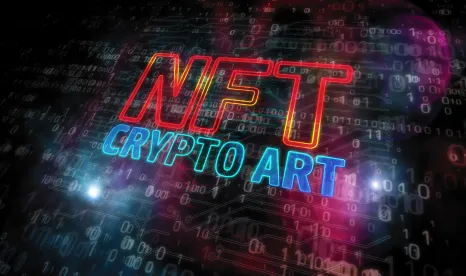A dispute between luxury fashion brand Hermès and digital artist Mason Rothschild over Hermès’ alleged trademark rights relating to the Hermès’ Birkin handbag is making waves as a New York federal judge has denied Rothschild’s motion to dismiss and cross-motions for summary judgment.
While not the first legal joust involving fashion-forward NFTs, this dispute is one of the first documented challenges that concern the interplay of digital arts, trademarks, and NFTs. And now, as one of the first cases to proceed to actual trial by jury, this case raises issues of first impression that could set significant legal precedent in the realm of fair use and clarify the balance of free speech and trademark protection as applied in the Metaverse and beyond.
The Accused NFTs – Your Mother’s or Not Your Mother’s
The NFTs at issue are digital art pieces entitled “METABIRKINS,” a series of 100 NFT images that depict a range of allegedly reimagined Hermès Birkin bags featuring a variety of colorful fur. Rothschild claims that his METABIRKINS are a tribute to the famed Birkin bag and a commentary on consumerism and animal cruelty within the fashion industry. The METABIRKINS NFT project, dubbed “Not your mother’s Birkin,” was released in December 2021. Rothschild also uses the domain name metabirkin.com and social media handles such as @metabirkins.
Hermès filed a lawsuit alleging, among other things, that Rothschild is infringing and diluting its famous BIRKIN and HERMES marks, and the BIRKIN Trade Dress, via his sale of the METABIRKINS NFTs. Indeed, the BIRKIN bag is considered by many to be one of the most iconic handbags in the world. Named after English-French actress/model Jane Birkin, the bag is often held as the ultimate symbol of status, wealth, and exclusivity with limited releases and values ranging from $10,000 to upward of $100,000.
In response to Hermès complaint, Rothschild argues that the METABIRKINS NFTs are artistic expressions and that his use was not misleading. Rothschild claims that he is entitled to protection under the free speech principles of the First Amendment of the Constitution as set forth in the case of Rogers v. Grimaldi. In the same vein, Rothschild compares his METABIRKINS NFTs to Andy Warhol’s renowned painting of Campbell’s soup cans (e.g., claims that the First Amendment protects his right to make and sell art depicting fanciful fur-covered Birkin bags, just as it provided Warhol the right to make and sell art depicting Campbell’s soup cans). Further, Rothschild asserts that the fact he uses NFT technology to authenticate and sell his art does not somehow alter the art in a manner as to support a finding of infringement.
Great Expectations
The outcome of this seminal dispute is poised to set significant legal precedent, including, for example, how the test under the Rogers case applies in the context of NFTs. The decision of the court may provide additional guidance on the dividing line between infringement and fair use when NFTs are tethered to art.
Elizabeth H. Cohen also contributed to this article.




 />i
/>i
